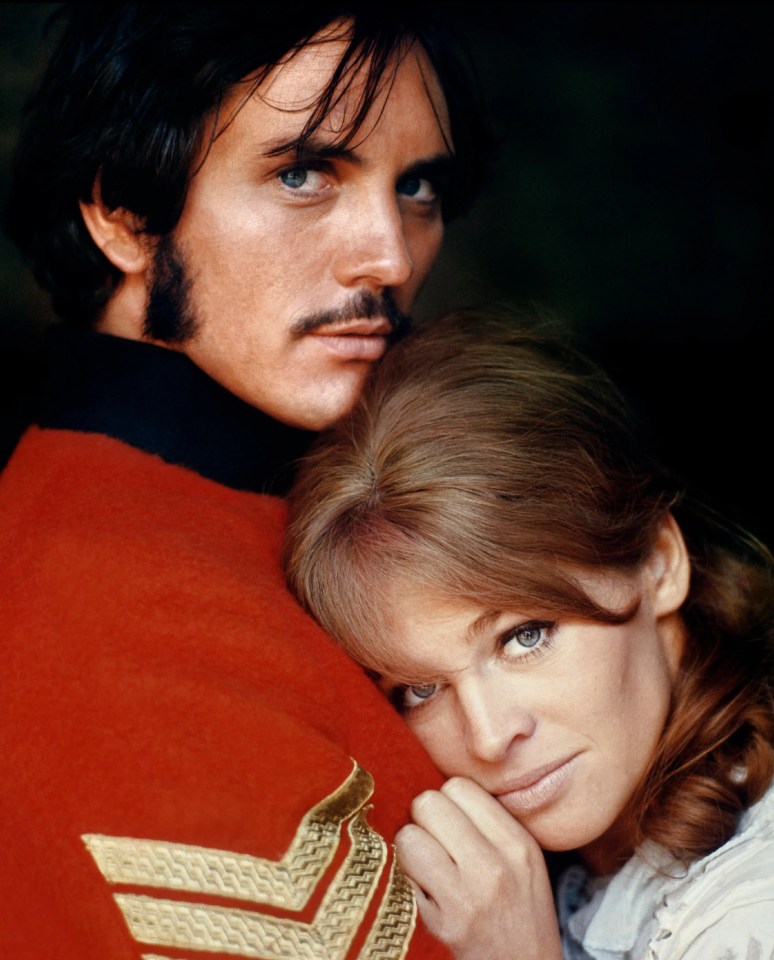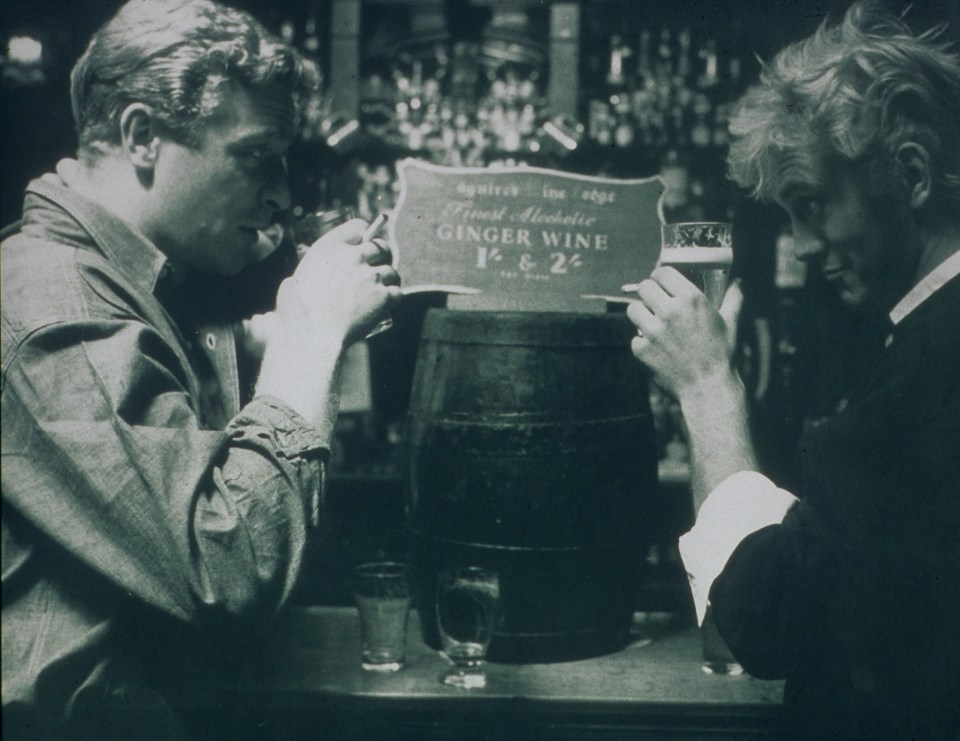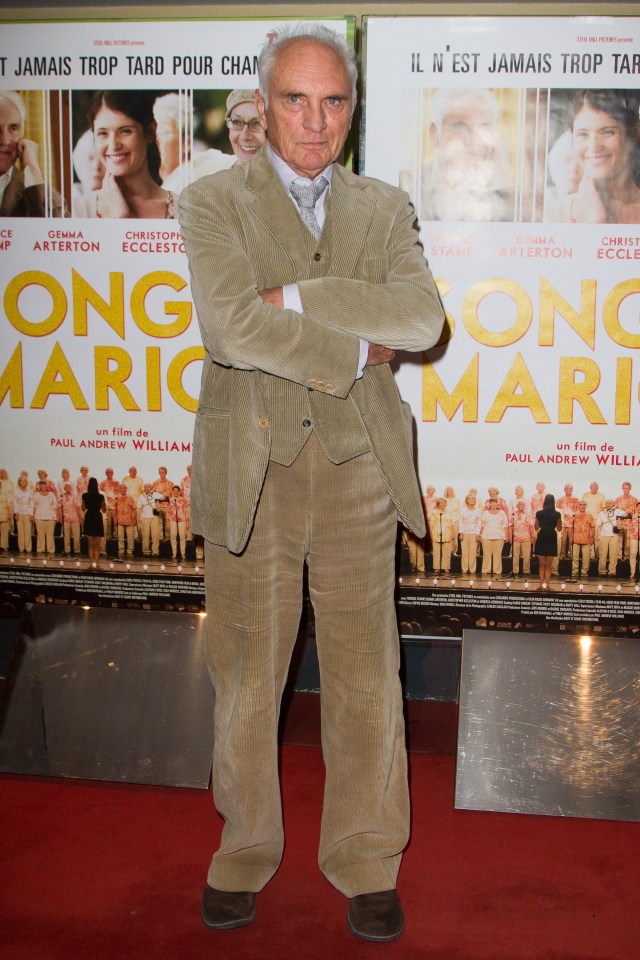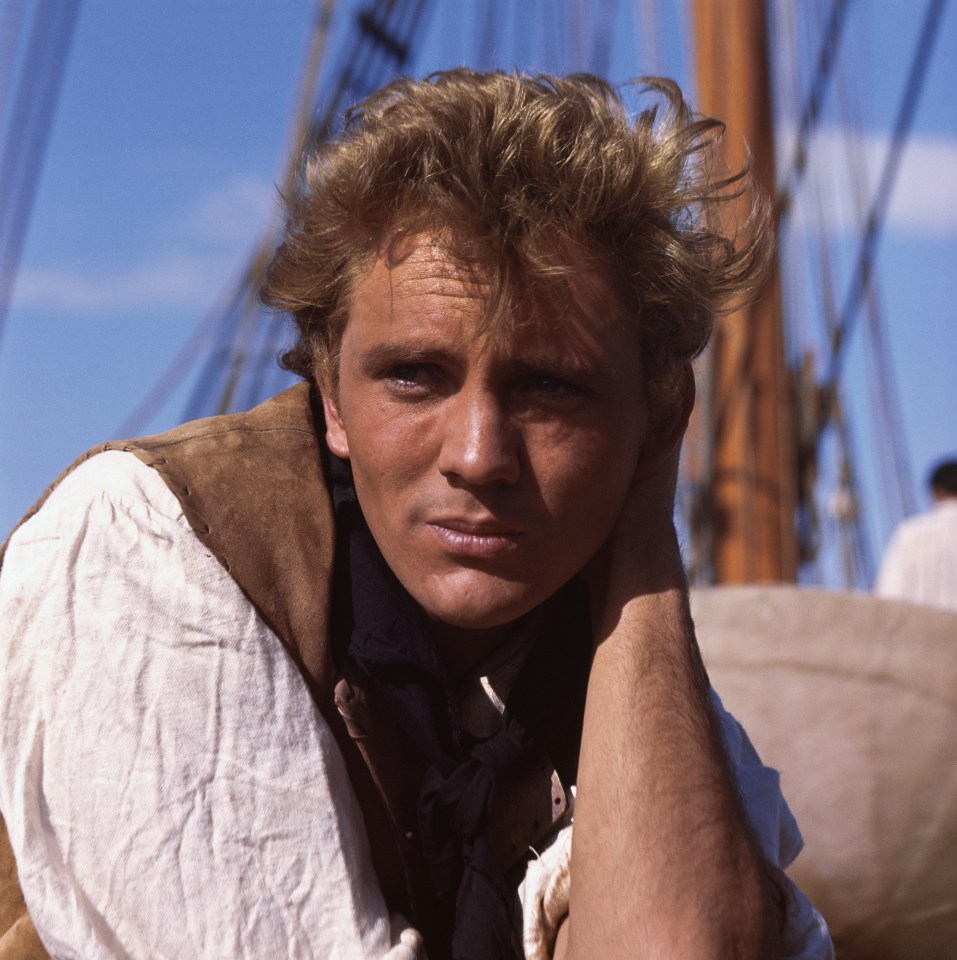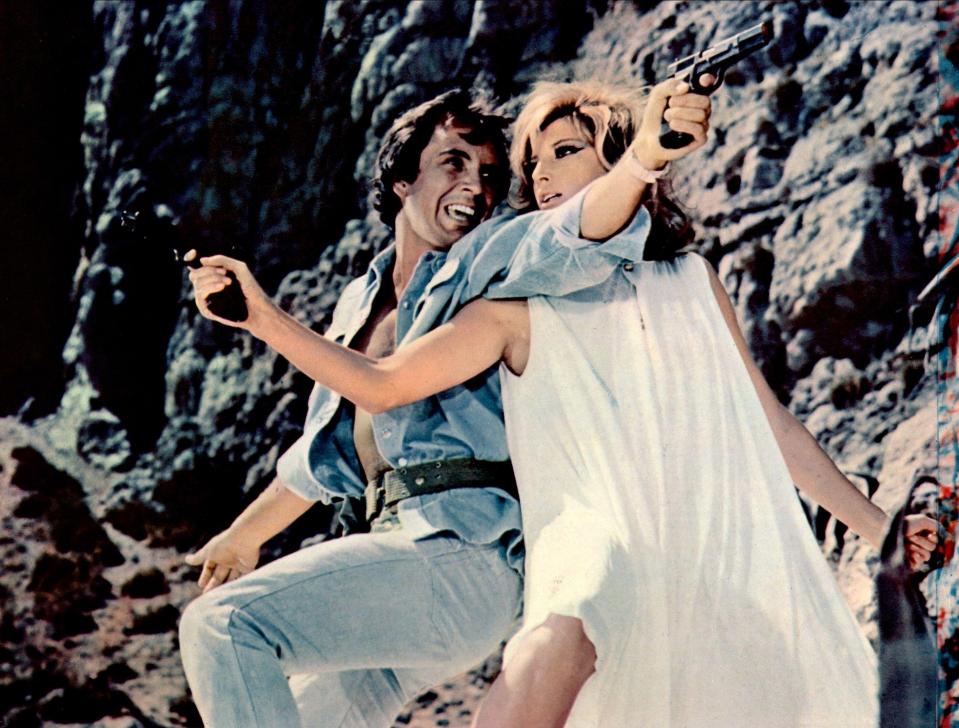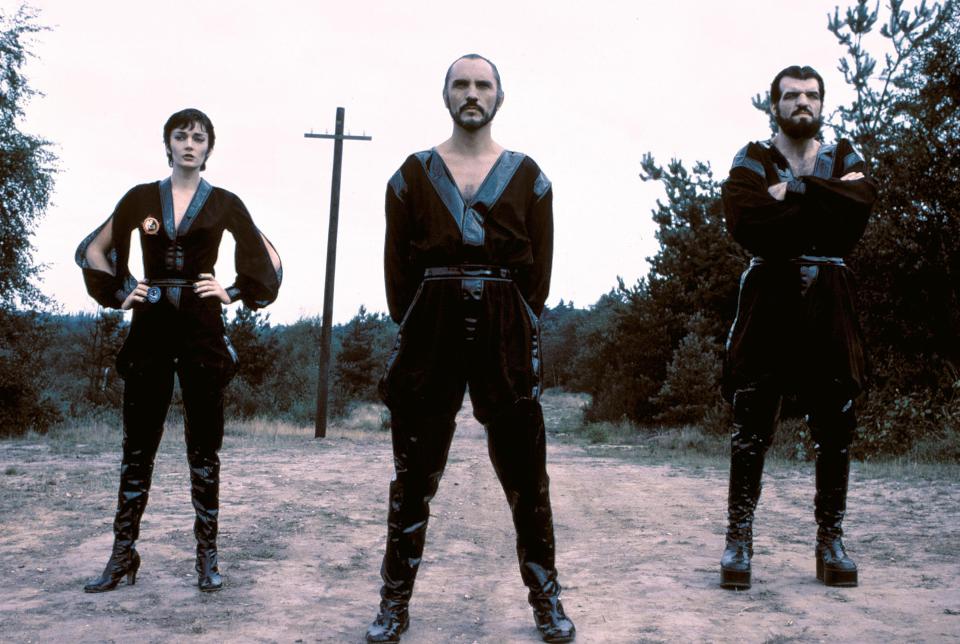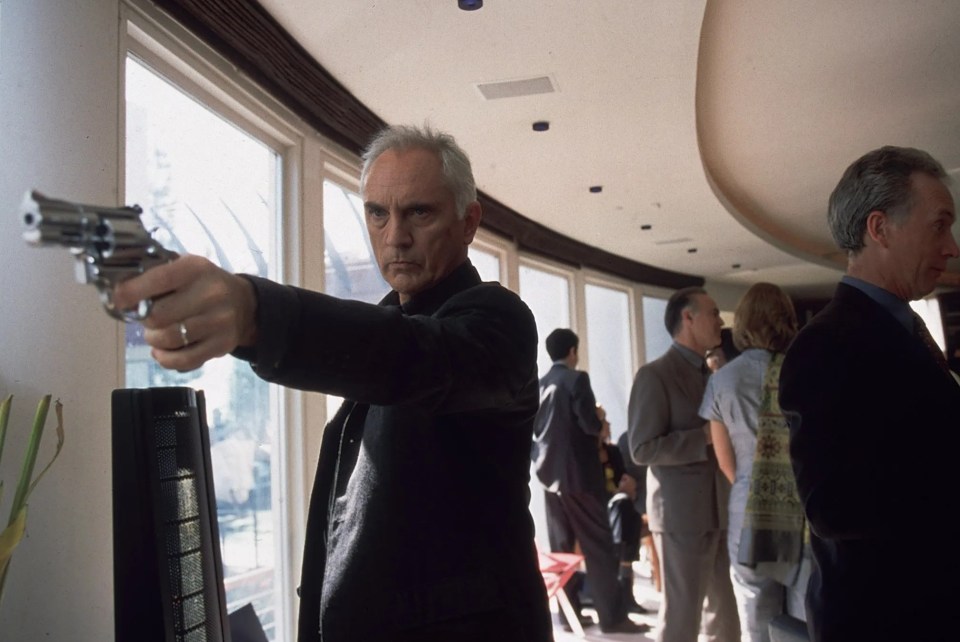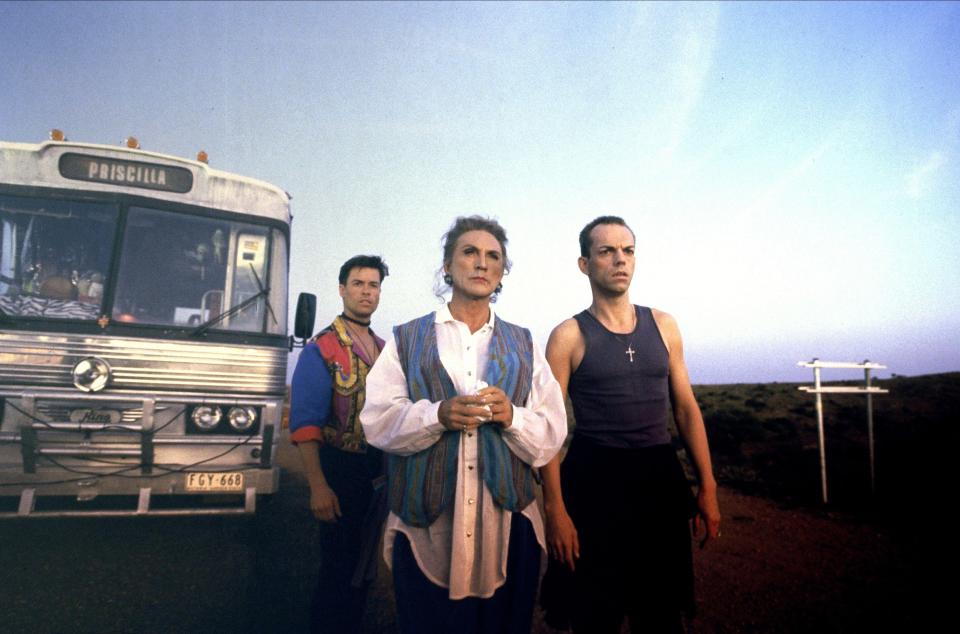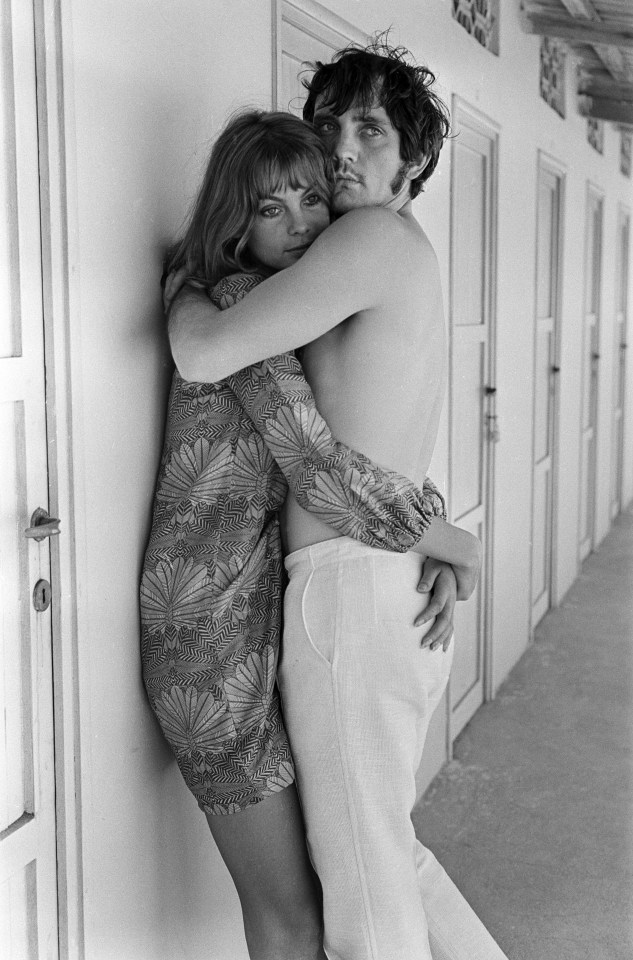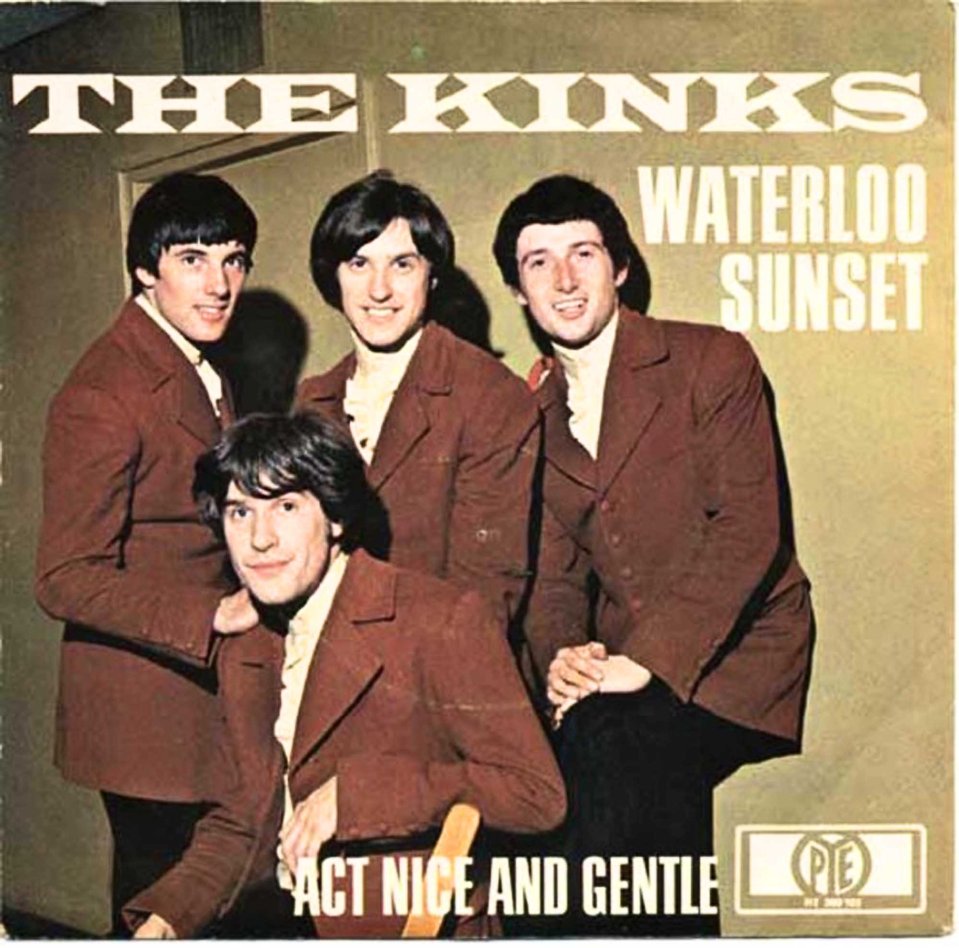THERE can be no cooler claim to fame than to be name-checked in one of the greatest pop songs ever written.
Waterloo Sunset by The Kinks, released at the height of the Swinging Sixties, featured a couple referred to only by their first names — Terry and Julie.
Julie was Julie Christie, the drop-dead gorgeous actress, and Terry was Terence Stamp, her real-life boyfriend.
The accomplished actor died yesterday morning, aged 87, and last night his family led the tributes to him.
They said in a statement: “He leaves behind an extraordinary body of work, both as an actor and as a writer, that will continue to touch and inspire people for years to come.”
Along with a handful of other leading men from humble backgrounds such as Michael Caine and Albert Finney, Stamp epitomised a new breed of screen star.
Ruggedly handsome, uncompromising and from a tough working-class background, he shot to fame with his first movie.
But as the Sixties drew to a close, it looked as though the sun was also setting on his career — and it was almost a decade before he triumphantly reappeared.
The oldest of five children, he was born Terence Henry Stamp on July 22, 1938, in Bow, East London, to mother Ethel and father Thomas, a £12-a-week tugboat stoker.
‘I was in pain. I took drugs – everything’
That made him, according to the saying, a genuine Cockney — “born within the sound of Bow bells”.
His first home had no bathroom, only a tub in the backyard which he would be dragged into on Friday evenings.
He later remembered: “The first one in would get second-degree burns — and the last one frostbite.”
In 2016, he said of his childhood: “The great blessing of my life is that I had the really hard bit at the beginning. We were really poor.
“I couldn’t tell anybody that I wanted to be an actor because it was just out of the question. I would have been laughed at.
“When we got our first TV, I started saying, ‘Oh I could do that’ and my dad wore it for a little bit.
“After I’d said, ‘Oh I’m sure I could do better than that guy’, he looked at me and he said, ‘Son, people like us don’t do things like that’.”
As an 18-year-old, he tried to evade National Service — a year and a half of compulsory duty in the military — by claiming to have nosebleeds but was saved when he failed his medical because of fallen arches.
Determined to realise his dream, Stamp left home and moved into a basement flat on London’s Harley Street with another promising young Cockney actor — Michael Caine. The pair became firm friends and ended up in repertory theatre, touring around the UK together.
Stamp’s performances soon brought him to the attention of acclaimed writer and director Peter Ustinov, who gave him the lead role in the 1962 historical drama movie Billy Budd. He was an overnight success.
Nominated for an Oscar for Best Supporting Actor, he also won the hearts of millions of female fans. And with his first Hollywood pay cheque, the image-conscious actor celebrated by buying himself a Savile Row suit and bleaching his hair blond.
Stamp heeded the career advice Ustinov gave him — to only accept job offers when something he really wanted came his way.
That may explain why he made only ten movies between 1962 and 1977.
His most famous role was as Sergeant Troy in Far From The Madding Crowd in 1967 — where he met and fell in love with co-star Julie Christie.
While Stamp was fast becoming a screen icon, his younger brother Chris was making waves in the music biz.
I was someone who was desperately unhappy. I was in pain. I took drugs — everything
Terence Stamp
Stamp Junior managed The Who and Jimi Hendrix, and was friends with many music legends of the time.
Talking about The Kinks’ classic Waterloo Sunset, written by frontman Ray Davies, Terence said: “My brother was quite friendly with him.
“He asked Ray Davies about that lyric and Ray Davies told my brother that, yes, he was visualising Julie and me when he wrote the lyric.”
But by the end of the decade, Stamp’s career was on the wane — and he was devastated when his “Face of the Sixties” model girlfriend Jean Shrimpton walked out on him — beginning what he called his “lost years”.
He said: “I’d lost the only thing I thought was permanent.
“The revelation came to me then — nothing is permanent, so what was the point trying to maintain a permanent state?
“I was someone who was desperately unhappy. I was in pain. I took drugs — everything.”
He clung on to a feeling that “the call would come” — but the wait was a long one.
It finally came in 1977 when he was offered the part of General Zod in Superman.
He took it — mainly because it gave him the chance to appear alongside his acting hero Marlon Brando.
The part brought him to the attention of a new audience — and last night fans paid tribute to his portrayal of the banished alien villain.
In a nod to his role as the evil leader who demanded his enemies show him deference, one fan wrote on X: “Thank you Terry . . . we will kneel today in your honour.”
Another wrote: “Terence Stamp was much more than Zod but at the same time one of the best comic book villains ever.”
‘My present was a box of Star Wars stencils’
Making up for lost time after the 1978 release of Superman, Stamp made dozens of films from then until 2021, showing off his huge range.
He won universal praise for his portrayal of an East End villain in The Limey (1999) and transgender woman Bernadette Bassenger in The Adventures Of Priscilla, Queen Of The Desert. Stamp also played Supreme Chancellor Finis Valorum in Star Wars: Episode 1 — The Phantom Menace, although the director George Lucas did not give him a huge payday.
He once cornered a producer during the shoot and complained about the pay.
He recalled: “I said, ‘Listen, you’re not paying much money and it’s making hundreds of millions. What goes down? What happens?’
“She said, ‘If the actors are really good, George gives them a present’.
“I thought, ooh, that’s all right. So when I leave the studio I go into my dressing room and there’s a box. It was a box of Star Wars stencils.
“That was my present. I just couldn’t believe it. I thought, may the Force be with you, George. I didn’t keep my stencils. I left them in the dressing room.”
Around that time, he said: “I moved from England some time ago because I wasn’t getting any work.
“I’m getting work in America and my films appear in France but for some reason I’m not getting any offers in Britain.”
But he kept himself busy by launching a successful parallel career as an author, writing five bestselling memoirs and two cookbooks.
He continued to select interesting roles and made a series of memorable cameo appearances, most recently, in 2021, in Edgar Wright’s psychological thriller Last Night In Soho.
Although he dated some of the world’s most beautiful women, including Julie Christie, Brigitte Bardot and sisters Joan and Jackie Collins, he married only once — to Elizabeth O’Rourke.
The pharmacist was 35 years his junior and the marriage lasted from 2002 to 2008.
He admitted he was upset by the split but added: “I always said I’ll try anything once, other than incest or Morris dancing.
“I’d never been married and I thought I would try it, but I couldn’t make a go of it.”
Looking back on his career, he once said: “I’d be lying if I said I was completely indifferent to the success of all my contemporaries. There are parts I would love to have had a stab at, but I see the decisions I made as invaluable.
“I’m not just chasing an Oscar. I am learning how to die — how to build something within myself that does not become dust.”
WATERLOO SUNSET (extract) by RAY DAVIES
Terry meets Julie
Waterloo Station
Every Friday night
But I am so lazy
Don’t want to wander
I stay at home at night
Millions of people
Swarming like flies ’round
Waterloo underground
But Terry and Julie
Cross over the river
Where they feel safe and sound
And they don’t need no friends
As long as they gaze on Waterloo sunset
They are in paradise


